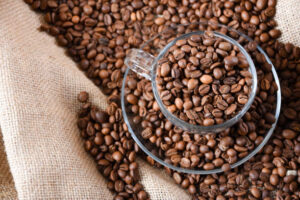Are you a coffee lover looking to elevate your home brewing game? An espresso machine could be the missing piece to your perfect home café. Espresso is the foundation for various coffee drinks like cappuccinos, lattes, and macchiatos, making it essential for any coffee enthusiast. This guide will walk you through everything you need to know to prepare an exceptional espresso coffee at home.
Understanding Espresso: The Basics
What is Espresso?
Espresso is a concentrated form of coffee served in small, strong shots. It’s made by forcing hot water through finely-ground coffee beans under high pressure. Unlike drip coffee, which uses gravity to pull water through the grounds, espresso uses up to 9 bars of pressure to extract flavor quickly and efficiently.
Benefits of Brewing Espresso at Home
- Quality Control: Control over every aspect of the brewing process.
- Cost-Effective: Save money by avoiding expensive café visits.
- Customization: Tailor your espresso to your taste preferences.
- Convenience: Enjoy café-quality coffee without leaving your home.
Essential Equipment for Brewing Espresso
Espresso Machine
Invest in a good quality espresso machine. There are semi-automatic and fully-automatic machines available, each with its own set of features and price points.
Grinder
A burr grinder is essential for achieving a consistent grind size, which is crucial for making high-quality espresso.
Tamper
To evenly compress the coffee grounds in the portafilter, you’ll need a tamper. This ensures even extraction.
Scale
A digital scale helps measure the exact amount of coffee grounds and water, ensuring consistency in each brew.
Fresh Coffee Beans
Opt for freshly roasted beans. Espresso generally benefits from a medium to dark roast.
Step-by-Step Guide to Making Espresso
Step 1: Preheat Your Equipment
Turn on your espresso machine and let it heat up. Also, preheat your cup by filling it with hot water.
Step 2: Measure and Grind the Coffee
Measure out 18-20 grams of coffee beans for a double shot. Use your grinder to achieve a fine grind, similar to table salt in texture.
Step 3: Dose the Coffee
Transfer the ground coffee into the portafilter. Distribute the grounds evenly for uniform extraction.
Step 4: Tamp the Coffee
Use the tamper to press down the coffee grounds firmly. The goal is to create a level surface with consistent pressure.
Step 5: Attach the Portafilter
Lock the portafilter into the machine’s group head.
Step 6: Extract the Espresso
Start the extraction process. Aim for a shot time between 25-30 seconds. The ideal shot should have a rich, golden crema on top.
Step 7: Serve and Enjoy
Pour your espresso into a preheated cup and enjoy it as is or use it as a base for other coffee drinks.
Tips for Perfecting Your Espresso
Experiment with Grind Size
The grind size significantly impacts the extraction time and flavor. If your espresso tastes sour, try a finer grind. If it’s too bitter, try a coarser grind.
Large Coffee Urn

- Temperature Control
- Premium Stainless Steel Hot Water Percolate
- Dispenser
- Reusable
Monitor Your Water Temperature
The optimal temperature for espresso extraction is between 195°F and 205°F. Many machines let you adjust this.
Clean Your Equipment
Regularly clean your espresso machine and grinder to avoid buildup that can affect the taste of your espresso.
Keep Practicing
Mastering espresso takes time and practice. Keep experimenting with different variables until you find your perfect shot.
FAQs
Why is my espresso shot too bitter?
Bitterness usually results from over-extraction. Try using a coarser grind size or reducing the extraction time.
Can I use regular coffee beans for espresso?
While you can use any coffee beans, espresso benefits from medium to dark roasts which bring out its rich flavors and crema.
How often should I clean my espresso machine?
Clean the portafilter and group head after every use. Perform a deep clean every few weeks, depending on usage frequency.
What’s the difference between a single and double shot of espresso?
A single shot uses about 7-9 grams of coffee and yields 1 ounce of liquid. A double shot uses about 18-20 grams and yields 2 ounces.
Can I make espresso without an espresso machine?
While nothing replicates the pressure of an espresso machine, Moka pots or AeroPress can produce espresso-like coffee.
Conclusion
Brewing espresso at home is not just about making coffee; it’s about the joy of the process and the satisfaction of crafting the perfect cup. With the right equipment, quality beans, and some practice, you can make espresso that rivals your favorite café. Start your journey today and elevate your coffee experience!
Happy brewing!






